 JEE Main College Predictor
JEE Main College Predictor
Know your chances in Top Engineering Colleges
Use NowConsortium of Medical, Engineering and Dental Colleges of Karnataka Under Graduate Entrance Test
Admit Card Date - Online Mode
May 6, 2024 - May 12, 2024
Joint Entrance Examination (Main)
Result Date - Session 2(B.E/B.Tech) - Online Mode
Apr 24, 2024 - Apr 24, 2024
Karnataka Religious and Linguistic Minority Professional Colleges Association Common Entrance Test
Admit Card Date - Online Mode
May 12, 2024 - May 19, 2024
Amrita Entrance Examination - Engineering
Admit Card Date - Phase 2 - Online Mode
Apr 29, 2024 - May 12, 2024
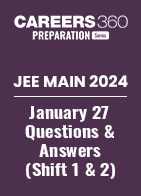
2237+ Downloads
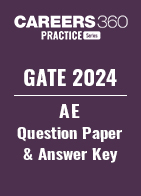
759+ Downloads
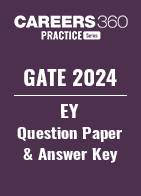
189+ Downloads

209+ Downloads

220+ Downloads

134+ Downloads
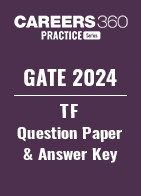
67+ Downloads
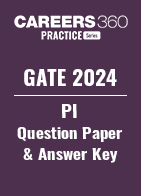
83+ Downloads



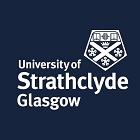

Hello aspirant,
Numerous states have discontinued their individual engineering entrance exams and now utilize JEE Main scores for B.Tech admissions. Annually, a vast number of students take the JEE Main exam with the aim of securing admission in B.Tech programs. In addition to the NITs and IIITs, many states and engineering institutions base their B.Tech/B.E. admissions on JEE Main scores.
To know complete eligibility criteria, you can visit our website by clicking on the link given below.
https://engineering.careers360.com/articles/state-btech-admissions-through-jee-main
Thank you
Hope this information helps you.
Admissions to any universities or colleges are given based on your rank. As per your overall percentile your rank could be between 239250-247080 approximately. Your eligibility will be based on many factors such as reservation, location etc.
Click on the below link to know more about the cutoff for IIITs.
https://engineering.careers360.com/articles/jee-main-cutoff-for-top-iiits
An exhaustive E-learning program for the complete preparation of JEE Main.
Aerospace engineering jobs deal with employees who design or build missiles and aircraft for national defense, or spacecraft. Aeronautical and astronautical engineering are two major branches of ae...
The flight attendant job description includes ensuring passenger safety during flights by adhering to safety regulations. Individual pursuing career as flight attendant is also tasked with serving ...
A career as a civil engineer is of great importance for the infrastructural growth of the country. It is one of the most popular professions and there is great professional as well as personal grow...
Are you searching for an 'airline pilot job description'? An airline pilot or airline commander flies aircraft and helicopters to provide transportation to passengers or cargo. The airline ...
A career as a Nuclear Engineer involves studying nuclear engineering which is the branch of engineering concerned with the application of breaking down or combining atomic nuclei with the applicati...
Individuals in the architecture career are the building designers who plan the whole construction keeping the safety and requirements of the people. Individuals in architect career in India provide...
Individuals who opt for a career as a geologist are required to study the earth's s structure and its various components that are present in solid, liquid, and gaseous forms. In engineering geo...
Having a landscape architecture career, you are involved in site analysis, site inventory, land planning, planting design, grading, stormwater management, suitable design, and construction specific...
Energy efficiency engineering is a broad field of engineering which deals with energy efficiency, energy services, facility management, plant engineering, and sustainable energy resources. Energy e...
Urban Planning careers revolve around the idea of developing a plan to use the land optimally, without affecting the environment. Urban planning jobs are offered to those candidates who are skilled...
A career as a Petroleum engineer is concerned with activities related to producing petroleum. These products can be in the form of either crude oil or natural gas. Petroleum engineering also requir...
A career in the aviation industry always sounds exciting. But, there is no scope for the slightest error as it may cost the lives of many people. A Flight Engineer role comes with the responsibilit...
Individuals who opt for a career as geothermal engineers are the professionals involved in the processing of geothermal energy. The responsibilities of geothermal engineers may vary depending on th...
Wind energy engineers are professionals responsible for generating electricity from wind energy. They design wind turbines, windmills and other related components.
The roles and responsibiliti...
An aircrew officer or airline commanders fly aircraft to provide transportation to passengers or cargo. The aircrew officer operates the engines of aircraft and controls to navigate and fly the air...
A Biomass Power Plant Manager is an agri-tech professional. He or she is primarily responsible for supervising the operations of biomass power plants or its substations. A Biomass Power Plant Manag...
A career as Transportation Planner requires technical application of science and technology in engineering, particularly the concepts, equipment and technologies involved in the production of produ...
When owners of apartments, condos, commercial buildings, or industrial or retail properties, lack the time or experience, they often employ a land or property manager or a community association man...
A career as a mining and geological engineer is a technical job that requires identifying sites enriched with underground minerals. Designing mines and supervising the construction of mines is ever...
An air hostess is a flight attendant also known as a cabin crew or steward. An air hostess undertakes several pre-flight, in-flight, and post-flight duties and is responsible for ensuring the safet...
Loco Pilot's position is common to the Indian Railways under the Ministry of Railways in the country. A Loco Pilot is the individual needed to drive the trains and provide effective monitoring ...
An expert in plumbing is aware of building regulations and safety standards and works to make sure these standards are upheld. Testing pipes for leakage using air pressure and other gauges, and als...
Individuals who opt for a career as construction managers have a senior-level management role offered in construction firms. Responsibilities in the construction management career path are assignin...
A Carpenter is typically a construction worker. He or she stays involved in performing many types of construction activities. It includes cutting, fitting and assembling wood. A carpenter may help ...
An individual who opts for a career as a welder is a professional tradesman who is skilled in creating a fusion between two metal pieces to join it together with the use of a manual or fully automa...
Individuals who opt for a career as an environmental engineer are construction professionals who utilise the skills and knowledge of biology, soil science, chemistry and the concept of engineering ...
A Naval Architect is a professional who designs, produces and repairs safe and sea-worthy surfaces or underwater structures. A Naval Architect stays involved in creating and designing ships, ferrie...
Welding Engineer Job Description: A Welding Engineer work involves managing welding projects and supervising welding teams. He or she is responsible for reviewing welding procedures, processes and ...
An Aeronautical Engineer job comes with the responsibility of designing aircraft and thrust systems. He or she is employed in aviation, defence or civil aviation industries. Aeronautical Engineer i...
Field Engineer Job Description: A Field Engineer career involves conducting extensive research to diagnose problems. He or she has to maintain the equipment and the site’s infrastructure. The...
Are you searching for a Field Surveyor Job Description? A Field Surveyor is a professional responsible for conducting field surveys for various places or geographical conditions. He or she collects...
Highway Engineer Job Description: A Highway Engineer is a civil engineer who specialises in planning and building thousands of miles of roads that support connectivity and allow transportation...
A Structural Engineer designs buildings, bridges, and other related structures. He or she analyzes the structures and makes sure the structures are strong enough to be used by the people. A career ...
Coal engineers are responsible for identifying and managing the sites where minerals can be extracted. They also oversee the construction of mines. As a coal engineer, he or she is responsible for ...
A Conservation Architect is a professional responsible for conserving and restoring buildings or monuments having a historic value. He or she applies techniques to document and stabilise the object...
A Safety Manager is a professional responsible for employee’s safety at work. He or she plans, implements and oversees the company’s employee safety. A Safety Manager ensures compliance...
A Team Lead is a professional who is responsible for guiding, monitoring and leading the entire group towards achieving the organisational goals. An individual in this career is required to create ...
A career as an Airline Ticketing Agent is a professional who works at an airline's ticket or baggage counter. He or she manages the sale of airline tickets, handles the changes in reservations,...
A career as a Transportation Engineer is someone who takes care of people's safety. He or she is responsible for designing, planning and constructing a safe and secure transportation system. Th...

The details of a career as has been sent to your registered email ID successfully.
Select your reason of reporting
We endeavor to keep you informed and help you choose the right Career path. Sign in and access our resources on Exams, Study Material, Counseling, Colleges etc.
